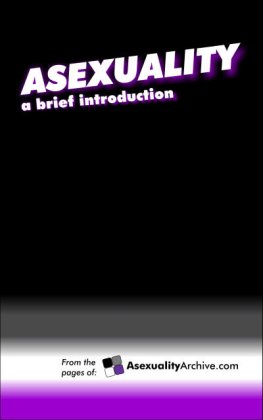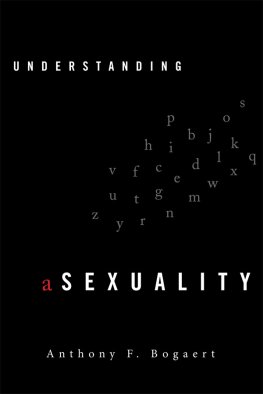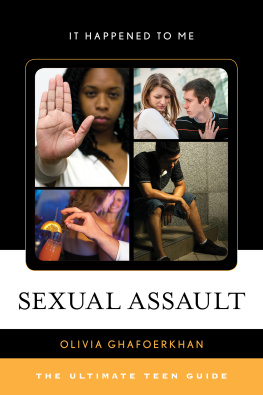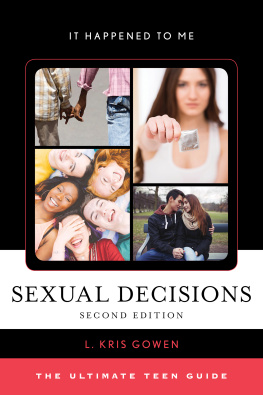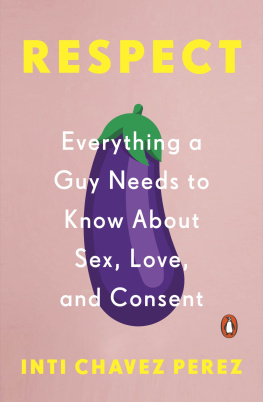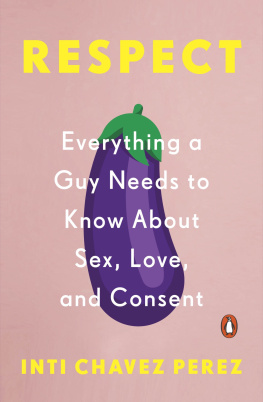More praise for
A Family and Friends Guide to Sexual Orientation
This book is a delightful and poignant eye-opener and a much needed, frank discussion about the barriers many face before fully accepting gay and lesbian family members and friends. By talking to people about their attitudes toward gays and lesbians, Powers and Ellis pull out universal lessons about life, coping, understanding, compassion and acceptance. One day we wont need a book to remind us to keep an open mind and value diversity. Powers and Ellis have made an important contribution in moving us to a more accepting, less judgmental future.
Julianne Malveaux
Economist/Columnist
Pacific Radio
A Family and Friends Guide will win over peoples hearts and minds. Powers and Ellis present the lives of real people from a wide range of backgrounds, and give us a powerful look at the impact of sexual orientation on our families.
Helen Zia
Contributing Editor, MS. Magazine
Like panels of the AIDS Memorial Quilt, the personal histories described in A Family and Friends Guide will soften hard hearts and open closed minds. In describing the experiences of a broad cross-section of the American public, Powers and Ellis book offers effective tools and strategies for helping us all to fulfill our God-given responsibilities to nurture more caring relationships and embrace a new, more inclusive society.
Anthony Turney
Executive Director
The NAMES Project
Absolutely enlightening! This guide is a must for anyone trying to understand sexual orientation.
V. Keith Meinhold
United States Navy
A Family and Friends Guide helps us understand the diverse issues related to sexual orientation. Out of this understanding, we become more open and accepting, leading to a newfound experience of joy and beauty.
Elizabeth Anne Parent, Ph.D.
Department Chair, School of Ethnic Studies
San Francisco State University
A Family and Friends Guide to Sexual Orientation
A Family and Friends Guide to Sexual Orientation
BOB POWERS
ALAN ELLIS
Published in 1996 by
Routledge
Taylor & Francis Group
711 Third Avenue
New York, NY 10017
Published in Great Britain by
Routledge
Taylor & Francis Group
2 Park Square, Milton Park
Abingdon, Oxon OX14 4RN
Routledge is an imprint of the Taylor & Francis Group, an informa business
Copyright 1996 by Routledge
All rights reserved. No part of this book may be reprinted or reproduced or utilized in any form or by any electronic, mechanical or other means, now known or hereafter invented, including photocopying and recording, or in any information storage or retrieval system, without permission in writing from the publisher.
Library of Congress Cataloging-in-Publication Data
Powers, Bob, 1941
A family and friends guide to sexual orientation / Bob Powers and Alan Ellis,
p. cm.
Includes bibliographical references.
ISBN 0415-91275X (alk. paper) ISBN 0415912768 (pb.)
1. Gays. 2. Lesbians. 3. Sexual orientation. 4. Attitudes. 5. Diversity. 6. GaysCase studies. 7. LesbiansCase studies. 8. Family issues. I. Ellis, Alan, 1957 . II. Title.
HD6285.P69 1995 | 95-23654 |
658.3045dc20 | CIP |
This book is dedicated to our respective friends,
Paul Edward Johnson and Eric Bean,
who have enriched our lives,
and to Courtney Powers,
whose youthful wisdom is a lesson in acceptance for all people.
There are many people we would like to thank for their support in developing this book, most especially the authors of the stories. Without their courage and remarkable portraits, this book would not exist.
In addition, we would like to thank Dennis De Biase for introducing us to our wonderful editor, Cecelia Cancellaro, Laurie Harper of the Sebastian Agency for her support and encouragement, and Robert Mitchell and Chris OSullivan for their editing suggestions. We would also like to thank the many staff at Routledge who have worked hard to support our books. Thank you Paul, Darren, Amy-Lynn, Adam, Rob, Kim, Vickie, Claudia, and Charles.
While many of us are well aware of the proverbial closet door with which gays, lesbians, and bisexuals have contended, few people are conscious of the impact those closets have on heterosexuals and fewer still know that heterosexualsfamilies and friends of sexual minoritiesface a heterosexual closet door.
 Closet: a perceived place of hiding (ones sexual orientation or the sexual orientation of a loved one)
Closet: a perceived place of hiding (ones sexual orientation or the sexual orientation of a loved one).
This closet contains the same dark emotionsfear, terror, dreadthat initially crippled and ultimately led lesbians and gays to fling their closet doors open in a quest for self-acceptance. For most heterosexuals, the closet is terrifying.
When I told my mom I was gay, I realized that while that step was one step on my journey of self-acceptance, for my mom, it was one step into her own private hellher closet. How can I possibly tell anybody, she asked? [Im so ashamed.]
Family and friends, upon learning that a loved one is gay, lesbian or bisexual, are immediately thrown into a process of coming out as a parent, a child, a spouse, a friendsimilar to the process gone through by any sexual minority.

Coming Out: the act of telling another person about your sexual orientation.
Its not unlike the process that anybody faces when they are hidingwhether it be an addiction, a sick family member, or an abundant inheritance. Hiding takes its toll! And, heterosexuals need to learn how to fling open their closet doors. They too need to come outto go through the steps of self-acceptance. Yet, when it comes to sexual orientation, most families have adopted a U.S. Military-like policy of DONT ASK, DONT TELL. In other words, I wont ask if youre gay and I dont want you to tell me if you are. This approach has a disastrous effect on family life for it completely destroys any chance of an intimate family relationship.
So why do so many families fall victim to such a situation that decreases the possibility of family intimacy? The answer lies in fear. A DONT ASK, DONT TELL family develops out of our fears. Here are ten fears that keep families closeted.
1) Fear of personal shame.
Our culture and many of its institutions send negative messages about homosexuality, and, as a result, many gays and heterosexuals experience shame about either being gay or having a relative or friend who is gay. These feelings of shame come from our having internalized these negative messages.




 Closet: a perceived place of hiding (ones sexual orientation or the sexual orientation of a loved one).
Closet: a perceived place of hiding (ones sexual orientation or the sexual orientation of a loved one). Coming Out: the act of telling another person about your sexual orientation.
Coming Out: the act of telling another person about your sexual orientation.


